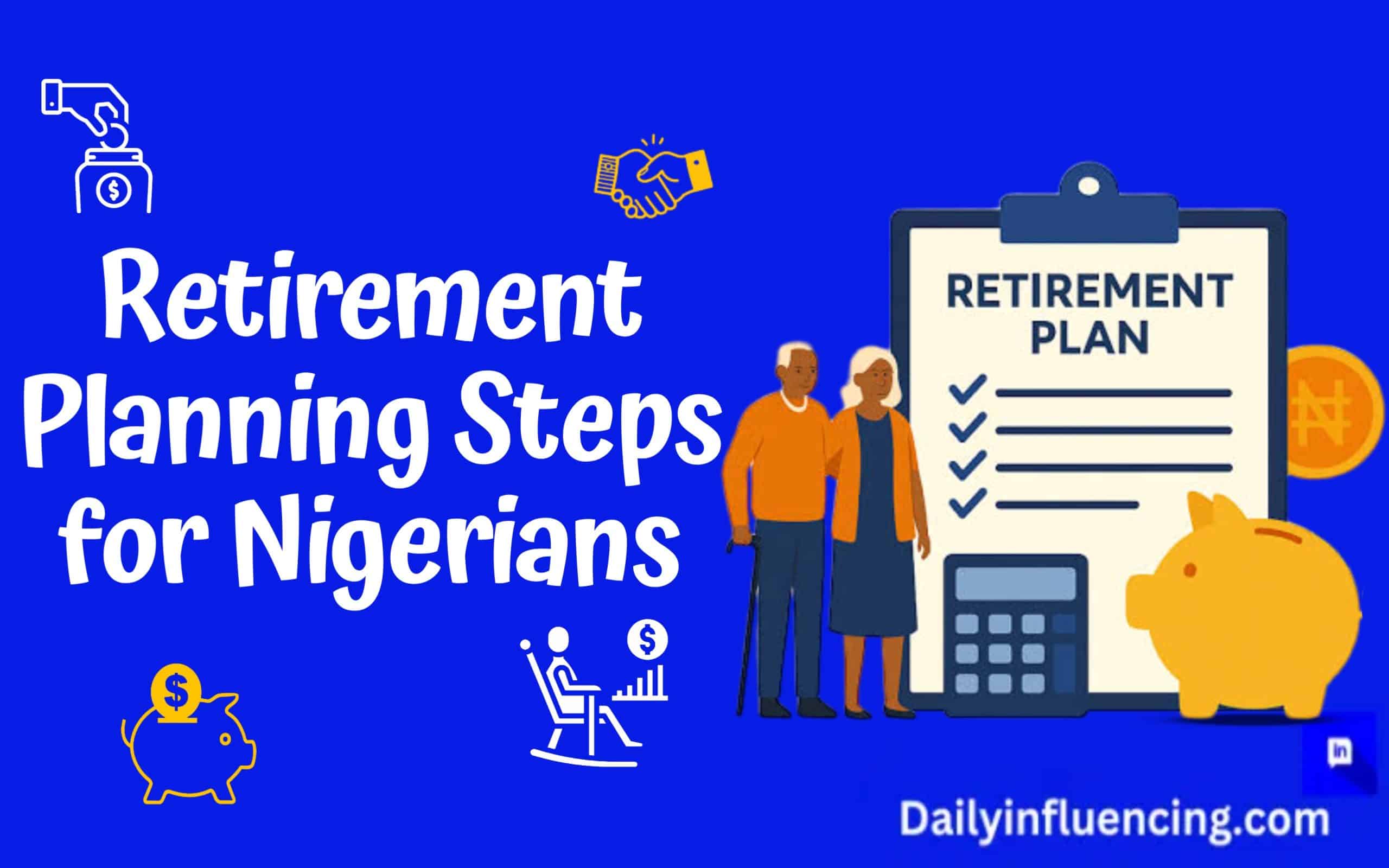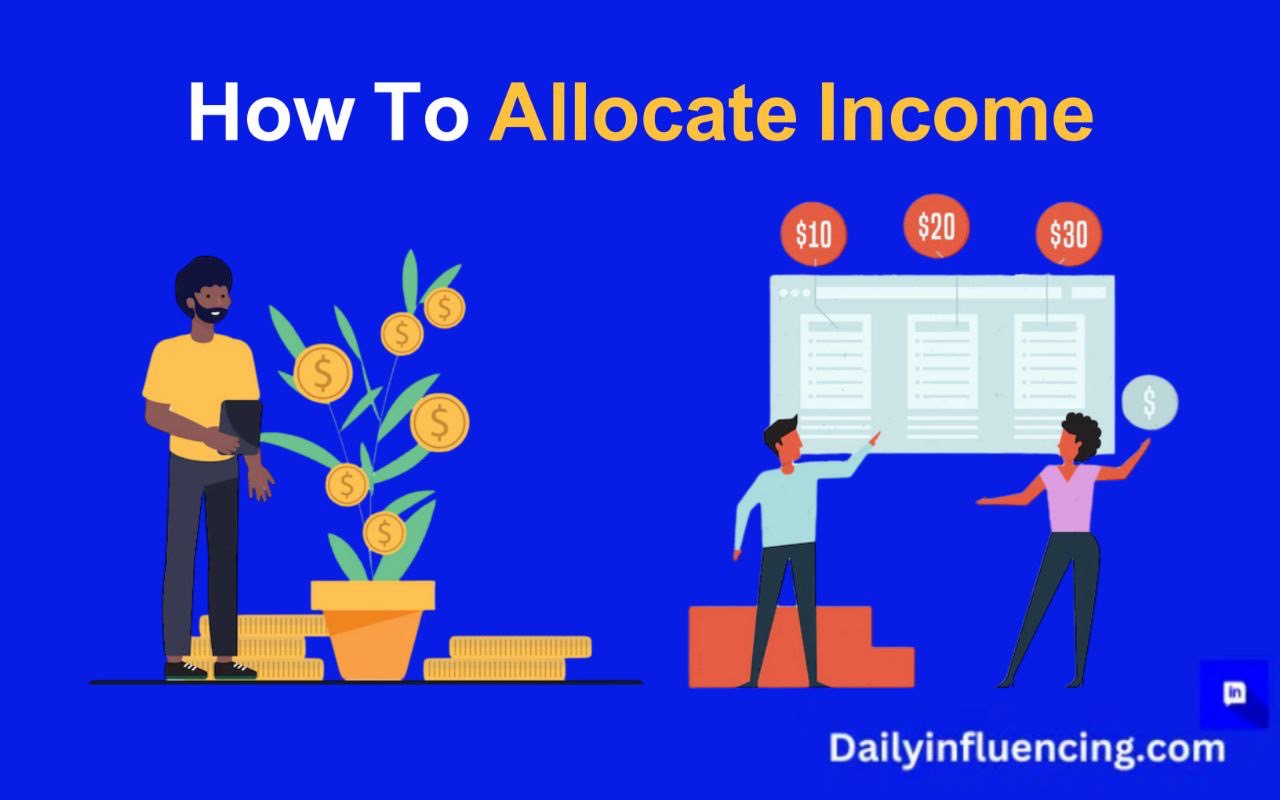
I’ve seen individuals spend decades building their small business or freelance career in Nigeria’s economy, but suddenly realize retirement is approaching, and they haven’t saved enough. About 85% of Nigeria’s working population is self-employed, yet most lack proper retirement planning.
Unlike salaried workers who benefit from the Contributory Pension Scheme, you’re left to figure things out on your own.
I’ve been there, running my own business for years while postponing retirement savings, believing “there’s always tomorrow.” But the truth is: retirement planning isn’t just for corporate employees. It’s even more crucial for self-employed individuals dealing with unpredictable income and no employer pension benefits.
Let’s break down what retirement planning really means for self-employed Nigerians and how you can create financial security despite the unique challenges you face.
The Retirement Reality for Self-Employed Nigerians
For self-employed Nigerians, retirement planning presents unique challenges that demand thoughtful consideration. With the economic environment constantly shifting and inflation hovering at concerning levels, securing your financial future requires more than just occasional saving.
The lack of employer-sponsored pension contributions means you’re solely responsible for building that nest egg that’ll sustain you when you can no longer work or choose not to.
Knowing the Available Retirement Options in Nigeria
Figuring out retirement options as a self-employed person in Nigeria isn’t straightforward. When you’re focused on keeping clients happy and your business afloat, retirement planning often gets pushed aside.
You might need a wake-up call (like seeing someone in their 70s who can’t stop working due to no savings) before taking action. But you don’t have to wait that long, you can start digging deeper into the retirement planning options available to you now.
1. Voluntary Pension Contributions for Self-Employment Nigerians
You don’t need to work for a corporation to have a pension. Nigeria’s Pension Reform Act has specific provisions for self-employed individuals. You can register with a Pension Fund Administrator (PFA) independently.
The Micro Pension Plan is designed specifically for self-employed and informal sector workers like you. It allows contributions that match your irregular income patterns – more during good months, less during slow periods.
You don’t need huge sums to start. Many self-employed Nigerians begin with just 10,000 naira monthly, gradually increasing as their business stabilizes. The tax advantages make it worthwhile – contributions are tax-deductible up to certain limits, reducing your annual tax burden.
Getting started requires minimal documentation: a valid ID, proof of business ownership, and your tax identification number. The registration process typically takes less than a week.
2. Investment Alternatives for Retirement Planning
Beyond formal pension schemes, diversifying into other investments strengthens your retirement strategy. Spreading your retirement investments across different assets protects you from market volatility.
Real estate works well for many self-employed Nigerians, but it costs a fortune for most beginners. You could start with a plot of land in a developing area, eventually building a rental property that generates monthly income for your retirement fund. Property appreciation often outpaces inflation in growing Nigerian cities.
For stability, consider treasury bills and government bonds. While the returns aren’t exceptional, they provide reliability through Nigeria’s economic fluctuations.
Don’t make the mistake of thinking retirement planning is just for corporate employees. It’s even more critical for self-employed Nigerians to take control of their financial futures through proper retirement planning and investment diversification.
3. Creating a Retirement Budget That Works
When you’re self-employed in Nigeria, creating a retirement budget feels like trying to hit a moving target. Your income fluctuates, the economy shifts, and inflation keeps changing the goalposts due to bad governance.
Many self-employed Nigerians skip this vital step in retirement planning because it seems too complicated. Don’t make that mistake. A retirement budget gives you direction and helps turn vague worries into actionable steps.
4. Assessing Your Retirement Planning Needs
You probably have a rough idea of your current expenses, but do you know what you’ll need when you retire? Most people don’t.
Start by tracking your current monthly spending. Apps make this easier, but even a simple notebook works. After a few months, you’ll spot patterns in your spending that help project future needs.
Healthcare costs typically increase as you age – a fact many self-employed Nigerians overlook in their retirement planning. You might spend relatively little on medical care now, but these costs often double or triple as you get older.
Don’t forget inflation’s impact on your retirement budget. At Nigeria’s average inflation rate, your money could lose significant purchasing power over 20-30 years. What costs ₦100,000 today might cost ₦400,000 or more by the time you retire.
5. Managing Irregular Income for Consistent Savings
The biggest challenge in retirement planning for self-employed Nigerians is converting unpredictable income into steady savings. When your earnings swing wildly from month to month, consistency becomes a problem.
Instead of fixing a specific amount, set a percentage of each payment for retirement savings. During good months, you’ll save more; during difficult times, you’ll save less – but you’ll always be saving something toward retirement.
Create a separate business emergency fund before focusing heavily on retirement savings. Without this buffer, you’ll likely raid your retirement funds during business downturns, damaging your long-term planning.
Treat your retirement contribution like any other non-negotiable business expense. Just as you wouldn’t skip paying suppliers, don’t skip “paying yourself” for the future.
Overcoming Retirement Planning Challenges
As a self-employed Nigerian, you face unique obstacles in retirement planning that employees with structured pension schemes don’t encounter. Recognizing these challenges is your first step toward overcoming them.
Many self-employed professionals delay retirement planning because of immediate business pressures. Others feel overwhelmed by the process. But addressing these challenges head-on turns retirement from a distant worry into an achievable goal.
Financial Literacy and Education
The knowledge gap remains one of the biggest barriers to effective retirement planning for self-employed Nigerians. You can’t implement strategies you don’t understand.
Start by dedicating just 30 minutes weekly to improving your financial knowledge. Free resources from reputable Nigerian financial institutions offer basic retirement concepts explained in straightforward terms. The Nigerian Pension Commission website contains valuable information specifically for self-employed individuals.
Community workshops often provide practical financial education tailored to local contexts. These sessions typically cost little or nothing but deliver significant value through retirement planning guidance specific to self-employed Nigerians.
Consider joining financial literacy groups with other self-employed professionals. These peer learning environments allow you to share retirement planning experiences and strategies that work in the Nigerian context. You’ll learn from others’ mistakes and successes while building a supportive network.
Creating Multiple Income Streams
Relying solely on one business or profession creates vulnerability in your retirement planning espeially as a Nigerian. Market shifts, health issues, or industry disruptions can frustrate your primary income source overnight.
Here are five effective income streams for self-employed Nigerians planning for retirement:
- Real Estate Investments: Purchase land or property in developing areas of Nigerian cities like Lagos, Abuja, or Port Harcourt. You can earn through rent while the property appreciates over time. Start small with a single unit and reinvest the proceeds. Many self-employed Nigerians have found that property values in strategic locations double every 7-10 years while generating monthly rental income.
- Digital Products and Online Courses: Create knowledge-based products that reflect your professional expertise. Whether it’s e-books, online courses, or templates, these products can generate passive income with minimal ongoing effort. Once created, these digital courses can sell without requiring your constant attention, making them perfect for retirement planning.
- Agriculture and Livestock Investments: Farming businesses like poultry, fish farming, or crop production offer steady returns in Nigeria’s growing agricultural sector. Sometimes you can consider partnering with experienced farmers who handle day-to-day operations while you provide capital. Agricultural investments can provide both regular income and appreciation of assets like land over time.
- Dividend-Paying Stocks and Mutual Funds: Invest in established Nigerian companies that consistently pay dividends. Financial institutions, consumer goods companies, and telecommunication firms can somtimes provide reliable quarterly or annual dividend payments. Regular dividend income can significantly increase your retirement funds while your stock portfolio potentially grows in value.
- Freelance Consulting or Mentorship: Package your professional knowledge into consulting services you can continue part-time during retirement. Many Nigerian professionals transition from full-time work to advisory roles in their field. This allows you to control your workload while maintaining income from your years of expertise.
Practical Retirement Planning Steps for Self-Employed Nigerians
Taking solid action toward retirement planning often feels overwhelming when you’re juggling all the responsibilities of self-employment. Many self-employed Nigerians procrastinate on retirement planning because they’re unsure where to start or believe they need large sums to begin.
The truth is that retirement planning works best when broken down into manageable steps.
Here’s how you can move from thinking about retirement to actively preparing for it, regardless of your current financial situation.
1. Start Today, Regardless of Age
The best retirement planning advice is simple but most people don’t understand. It begins by starting now. Every day of delay costs you the power of compound growth on your investments.
Your age shouldn’t stop you from starting retirement planning. If you’re in your 20s or 30s, you have the advantage of time—even small contributions grow substantially over decades. A 25-year-old saving ₦10,000 monthly could accumulate millions by retirement age through consistent investing and compound returns.
If you’re starting your retirement planning at 40 or 50 years old, don’t get discouraged. You can accelerate your progress through higher contribution percentages. Many successful self-employed Nigerians have built substantial retirement funds starting in their 40s or 50s by allocating 25-30% of their income to catch up.
Schedule quarterly reviews of your retirement planning progress. These regular check-ins allow you to adjust strategies as your business grows or market conditions change. What works in your 30s might need modification in your 40s and complete revision in your 50s.
2. Legal and Estate Planning Considerations
Retirement planning extends beyond just accumulating funds—it includes protecting what you’ve built through proper legal structures. Many self-employed Nigerians overlook this important aspect until it’s too late.
Create a will as part of your retirement planning process. Without this document, Nigerian inheritance laws might distribute your assets in ways that don’t align with your wishes, potentially leaving your business and retirement funds vulnerable.
Develop a business succession plan if your self-employment involves a company that others depend on. It allows your business to either continue providing value to stakeholders or gets liquidated efficiently, while protecting the retirement funds tied to your business assets.
For most self-employed Nigerians with substantial assets, trust arrangements might provide tax benefits and protect assets for beneficiaries. These legal structures can be very valuable if you have dependents with special needs or want to control how your retirement assets are used after your passing.
Conclusion
The process of retirement planning for self-employed Nigerians doesn’t have to be stressful. You can always start with small, consistent steps and gradually build your financial safety net. Note that you don’t need to figure everything out at once—progress beats perfection every time.
The path might seem challenging with Nigeria’s economic uncertainties and your fluctuating income, but having a strategy in place brings peace of mind that’s worth the effort. Whether you choose pension contributions, investments, or creating passive income streams, the important thing is to begin now.
Take that first step today—open a retirement account, speak with a financial advisor, or simply calculate your retirement needs.
FAQs
Yes, self-employed Nigerians can participate in the Contributory Pension Scheme through the Micro Pension Plan specifically designed for informal sector workers. You can register with any Pension Fund Administrator of your choice and make flexible contributions based on your income patterns.
Financial experts recommend saving 15-20% of your income for retirement, but this percentage can be adjusted based on your age, current savings, and retirement goals. If you’re starting later in life, you might need to save a higher percentage to catch up.
Contributions to regulated pension schemes are tax-deductible up to certain limits under Nigerian tax laws. Additionally, investment returns within pension accounts grow tax-free, and withdrawals after retirement age may qualify for preferential tax treatment.
Consider using a percentage-based approach rather than fixed amounts, saving more during high-income periods. Setting up a separate business emergency fund can help prevent dipping into retirement savings during lean times. Automated transfers and treating retirement contributions as non-negotiable expenses can also help maintain discipline.





